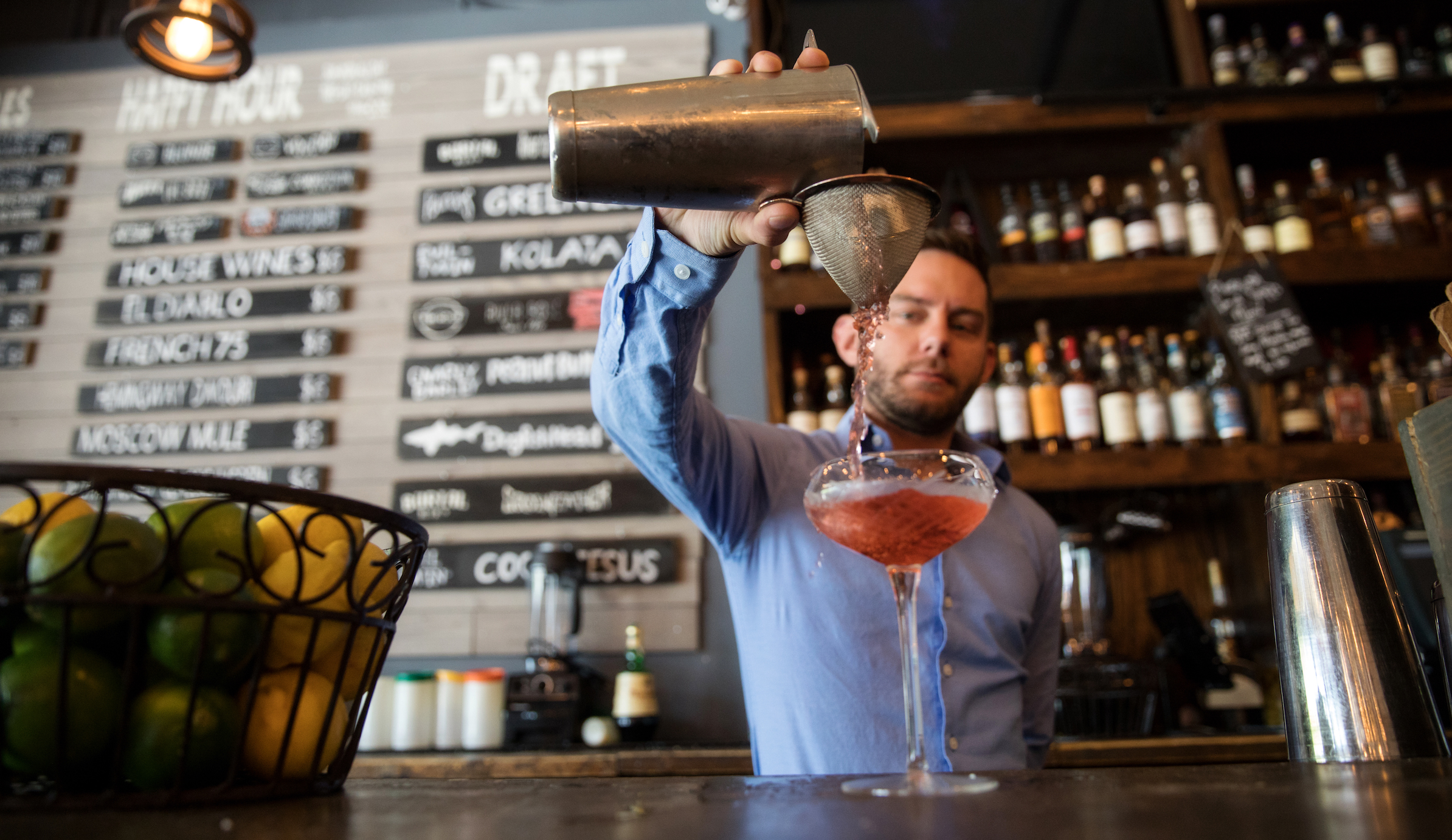
With doors locked since mid March, Baton Rouge bars without food permits continue to struggle
Correction: This article has been changed since its original publication to update Quentin Little’s title at Splash. He’s the general manager, not the owner. 225 regrets this error.
Louisiana’s Phase One of the COVID-19 shutdown has allowed restaurants and bars with state Department of Health food permits to operate within a certain capacity. But some of these bars—and especially those without food permits—are left struggling to navigate the new normal.
Brad Watts, owner of downtown bar The River Room, says his doors have been locked since March 15.
“I haven’t sold a drink, and I don’t have a license to serve food, so to date, I don’t have an option,” Watts says.
|
|
The current guidelines allow for bars to open to 25% capacity, so long as they are serving food. But many bars that do have food permits, such as Olive or Twist, say they don’t see much benefit in opening for Phase One.
Olive or Twist co-owner Scott Gremillion says he and his team are using this time to renovate instead.
“You have to figure out if you can make money in Phase One and pay your employees,” he says. “That’s the bottom line. And if you don’t think it’s worth your while, then you need to prepare for Phase Two, when you can increase your capacity.”
Gremillion also questions the logic of the Phase One guidelines.
“If four people come in and order the cheapest thing on the menu, is that really solving anything?” he asks.
Watts finds it unfortunate that smaller bars are getting grouped in with the larger bars, according to the guidelines.
“I appreciate the fact that they don’t want to put 500 or 1,000 people in a club right now. But I don’t see the harm of having 20 to 25 people sitting in The River Room, spaced apart and enjoying a cocktail,” he says. “It’s a hard pill for me to swallow.”
Splash nightclub general manager Quentin Little says he believes the Phase One guidelines discriminate against bars without food licenses.
“The only difference is that piece of paper saying we’re allowed to serve food,” he says. “I don’t see how that piece of paper in any way makes Splash any less safe compared to any bar that does have it. If the whole shutdown is about safety, there’s no reason for it to be like that at all.”
Little says he believes the guidelines were designed so that bars with licenses could serve food, but that’s not exactly how it’s playing out.
“I went to a restaurant the other day,” he says, “and you could sit on the patio and order just drinks all afternoon, and nothing was said to you.”
While these bars are dealing with their own issues and uncertainties during Phase One, they have one thing in common—they are all eagerly awaiting Phase Two for a chance to possibly expand capacity and once again open their doors to the public.
Hayride Scandal event manager Charles Rodenkirch and his team have set up a GoFundMe account in an effort to raise money for the staff’s salaries.
In the meantime, he says he and his bar are hopeful for the future. They are planning to reopen in mid June and are still deciding on whether or not to apply for a food permit.
“We’re just trying to keep everybody on the same page and let everyone know it’s going to be fine,” he says, “because we’re coming back, and we’re coming back strong.”
|
|
|
